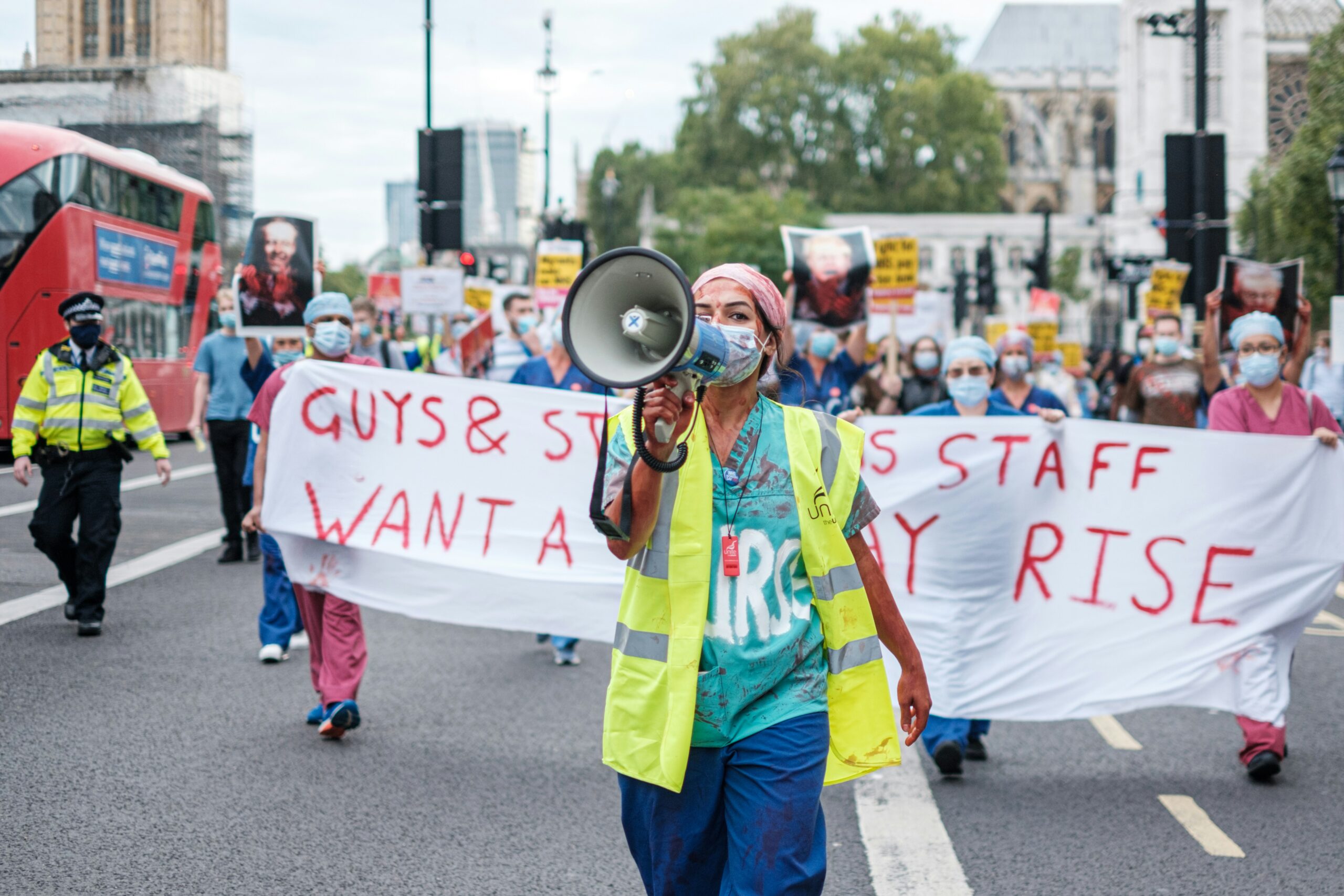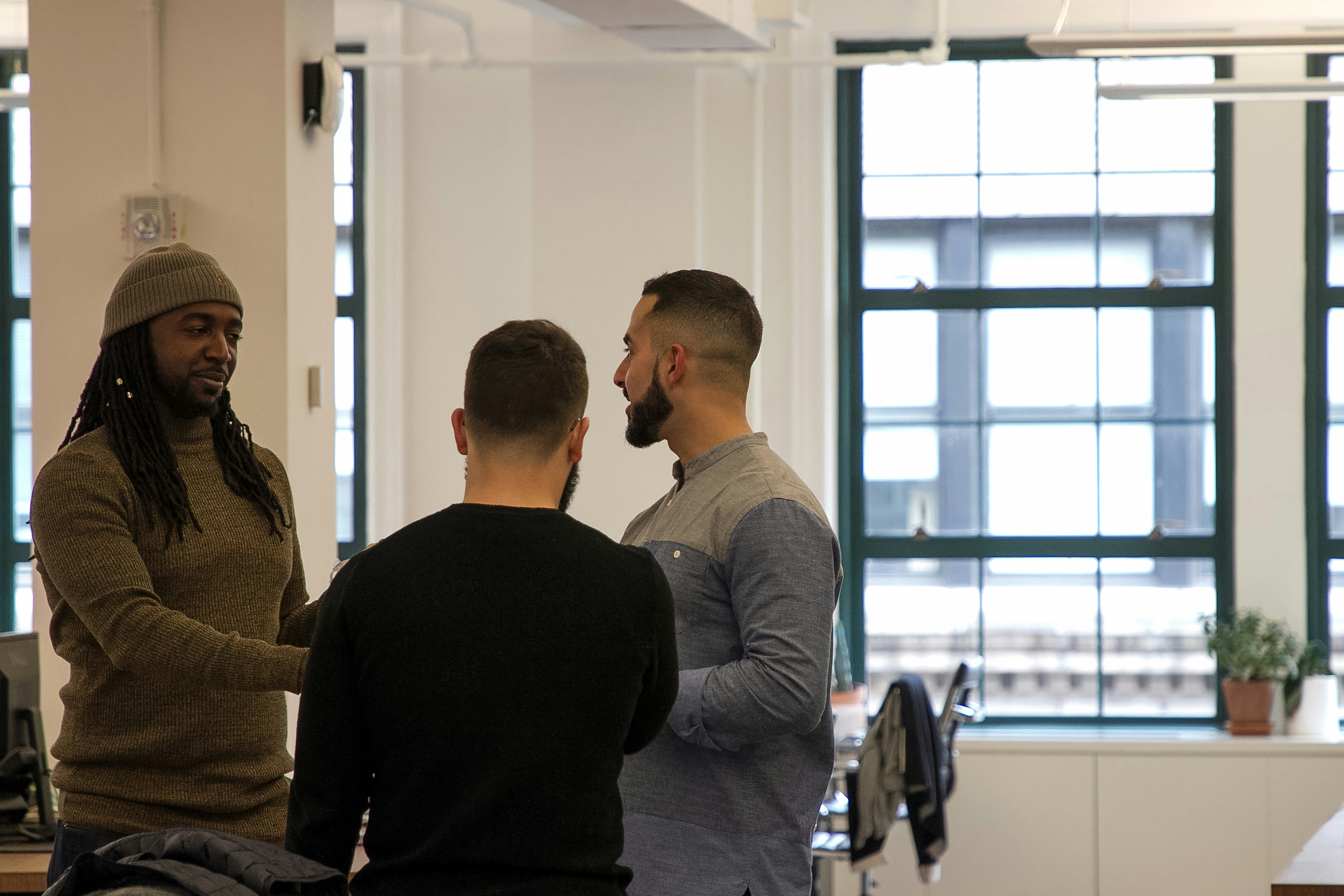5 Black Leaders that Shaped the Labor Movement
 Photo by Oladimeji Odunsi on Unsplash
Photo by Oladimeji Odunsi on Unsplash  Photo by Oladimeji Odunsi on Unsplash
Photo by Oladimeji Odunsi on Unsplash  Photo by Ehimetalor Akhere Unuabona on Unsplash
Photo by Ehimetalor Akhere Unuabona on Unsplash Welcome to 2024, a year brimming with possibilities and opportunities for positive change! 2023 saw major shifts towards collective worker power and employees advocating for their rights nationwide. As we step into this new chapter, we can’t help but feel the excitement and energy of creating our Year of Unity. A fitting title to honor our twenty years of championing equity for all in the Bay Area.
This year, we’re not just marking time but making it count. With a renewed focus on collective worker power and an unwavering commitment to our mission, we’re gearing up for impactful initiatives. Our upcoming strategy launch is set to redefine how we champion quality and empowered employment, ensuring our work aligns seamlessly with our core values. The Building Worker Power report, born from vital partnerships with workforce training programs, will spotlight their invaluable contributions to our community.
But that’s not all—enter our Funder Community of Practice, a space that embodies the spirit of participatory philanthropy. This year, we’ll explore the critical role of worker organizing and organized labor in economic justice. While we introduce new elements, our steadfast dedication to bringing statewide job quality remains unwavering.
As we embark on this exciting journey, we extend our heartfelt gratitude to our supporters, advocates, and community partners who have been instrumental in our 20-year journey. Thank you for your unwavering commitment to equity, collaboration, and pursuing a Bay Area where everyone can thrive. Here’s to 20 years of impact and many more ahead!
In Solidarity,
Brianna, Janelle, + Rob
To read future newsletters, click here to subscribe.
 Photo by ian dooley on Unsplash
Photo by ian dooley on Unsplash The year 2023 is almost officially over, and what a year it has been for worker’s rights. As of October, there have been over 300 documented strikes, comprised of over 453,000 workers, doubling the number from 2022. Almost half a million people organized and protested for their rights as employees. In California alone, the healthcare workers, hospitality employees, teachers, and both actors and writers’ unions collectively took to the picket lines for their respective causes. The most rewarding part is that there were so many wins. The efforts are paying off, and things are changing for the better. This is only the beginning. Hot labor summer transformed into a season of solidarity and, up next, a year of unity. We recognize this work is a marathon, not a sprint, and we are fully committed to continuing the job.
We also acknowledge that work of this magnitude requires rest; rest as resistance. So take some time to reflect on the strides made this year, on the power reclaimed, the voices heard, but most of all, take some time to recuperate. We invite you to carve out a moment, no matter how brief, to intentionally unplug as the year concludes. While our messages may be less frequent in the coming weeks, rest assured that we are revitalizing, reigniting our enthusiasm, and reaffirming our dedication to fostering a more equitable Bay Area economy. We will see you in 2024, energized and ready to make an even bigger impact in the Bay.
For ways to get involved click here.
In Solidarity,
Brianna, Janelle, + Rob
To read future newsletters, click here to subscribe.
As the scorching Hot Labor Summer gives way to Solidarity Season, the collective power of over 453,000 workers takes center stage on the picket lines. Their demands are clear: fair wages, safety and security in the workplace. Respect and dignity in one’s work is a very simple request. However, employers and corporations have spent months deliberately stalling negotiations and chipping away at what little protections currently exist. While Q3 earnings reports lament revenue lost due to labor actions, workers have gone without a paycheck for months. For many living on the edge of financial instability, this prolonged income drought has made an already bad situation even worse. Winter slowdowns are on the horizon and may prove even more devastating for workers and their families. How can we better support the people on the frontlines risking their livelihoods to advocate for an equitable Bay Area?
Donate – One of the best ways to support striking workers is to donate your time or money to efforts by your local union. They may have a strike assistance program or a list of specific community needs you could help with.
Discover – America has a long history of collective organizing and stories of how everyday workers have advanced equity our society. Take some time to read about past and present labor leaders like Larry Itliong, Helene Powell, Chris Smalls, or Yvonne Wheeler.
Defend – Your voice matters in this fight, too! From every dollar you spend to your voting ballot to your algorithm, make sure you are making choices that align with your support for workers’ rights. You can start this today by forwarding this newsletter to someone in your network or sharing it on LinkedIn!
To the workers defending our humanity and making it possible for everyone to live full lives with security, dignity, and agency in our work, home, and communities, we say Thank you.
In Solidarity,
Brianna, Janelle, + Rob
To read future newsletters, click here to subscribe.
 Photo by The Jopwell Collection on Unsplash
Photo by The Jopwell Collection on Unsplash In case it slipped under your radar, October 5th marked Latina Equal Pay Day! Did you know that Latinas make 52 cents for every dollar a white non-Hispanic man makes? Throughout the day, numerous social justice organizations joined forces in a social media storm, shining a spotlight on this staggering gender pay gap. We heard a multitude of stories backed by statistics of wage disparity and discrimination. The median annual pay for a Latina in the United States is $31,600, while the median yearly income for a white, non-Hispanic man is $60,830. At this rate, Latina women quite literally must work twice as hard to get half as far. Given this near $30,000 difference, in conjunction with over half of all Bay Area residents experiencing trouble with covering basic household expenses, the impact of paying women equitably is real. The consequences of not doing so are just as palpable. Employment discrimination and inequality cost the Bay Area approximately $5 billion in unrealized Gross Domestic Product (GDP) in 2020 alone.
As stark as these statistics are, it’s important to remember that real people are behind them. $30,000 is thirty-eight months’ worth of groceries. It’s three years of childcare or two years of rent. That $30,000 is a completed associate’s degree. This is life-changing money. And if we are going to ReWork the Bay Area into a place where everyone can live full lives with dignity in their work, we will have to take life-changing action. We can use these numbers to tell the stories of the people behind them in an honest and compelling way.
In a unique collaboration, our cross-sector Equity at Work Council, in partnership with the Bay Area Equity Atlas, took decades of experiences and data from Bay Area workers and crafted a narrative that provides a comprehensive view of how workers are faring in the region. It’s a meaningful exploration beyond numbers, delving into the everyday stories that shape our workforce.
We are thrilled to present the first-ever State of Bay Area Workers Data Tool. There, you will find a well-rounded picture of work and workers in each Bay Area county and the Region as a whole. With the data tool, you will learn more about where we are and, in turn, help get us to where we want to be.
In Community,
Briana, Janelle, + Rob
To read future newsletters, click here to subscribe.
Studs Terkel, an American author, first published “Working: People Talk About What They Do All Day and How They Feel About What They Do” in 1974. His style of writing focuses on oral history, where the people lead and tell their own stories, absolutely shines. We hear from dozens of workers in various industries, from flight attendants and servers to teachers and autoworkers, about their ambitions and frustrations with this thing called work. Terkel’s book is a first-hand account of motivation, self-actualization, and the American labor experience.
Certainly, much has changed in the last 50 years, right?
Earlier this year, “Working: What We Do All Day” debuted on Netflix. The four-part documentary, directed by Caroline Suh and narrated by Barack Obama, gave us a glimpse into the experiences of workers today. The documentary follows people from across the country doing their best to find economic stability and navigate the changing field of employment while building a fulfilling life.
One constant that stood out like a neon light was how strongly workers from both the documentary and book wrapped their sense of identity and self-worth around their job; and thus they demanded more from them. As Terkel wrote, “Work is about a search for daily meaning as well as daily bread, for recognition as well as cash, for astonishment rather than torpor; in short, for a sort of life rather than a Monday through Friday sort of dying.” As recounted in the book, Mike LeFervre’s frustration with pouring into his job at the steel mill without getting anything back parallels hauntingly to Randi of the Netflix documentary, who opts for lower wages to have a job with meaning and impact.
A significant piece left dangling in these stories is how these workers deserve more and how we, as a society, can do better for them. You shouldn’t have to choose between helping the community and putting food on the table. A job where you are entrusted to take care of the most vulnerable of people should not pay $9 an hour, and you should not have to disassociate from your body to get through the day. Everyone deserves to live a full life, one where their heart swells with the respect that is felt at home and at work. We are proud to help rework the Bay Area economy into a place where workers get a little more out of clocking in.
With admiration,
Janelle, Brianna, + Rob
To read future newsletters, click here to subscribe.
August is a significant month for commemorating resilience, strength, and community power. We celebrate Black August in uplifting freedom fighters contending with the prison industrial complex, as well as rejoice in community power building during Black Philanthropy Month. Black August teaches us that autonomy over one’s life is a fundamental human right and must be treated as such, while Black Philanthropy Month is proof that when we work in solidarity, our reach is that much greater. At ReWork the Bay, we know it’s possible to rebuild the Bay Area economy so that it serves everyone. We move towards achieving this every day. And, through observing and educating ourselves about Black August and Black Philanthropy Month, we embrace a core truth about this work:
We cannot accomplish this mission without the community. The communities we serve must be centered and have complete autonomy in decision-making. Otherwise, we are just taking pretty pictures.
Philanthropy is such a powerful tool in advancing equity. However, just like any tool, it works best when used efficiently. The most efficient use of philanthropic dollars is building community power and funding community-led initiatives. Unfortunately, much of today’s philanthropy misses the mark by supporting projects built in silos, far away from the problems and the real people they affect. I am proud to work for an organization that recognizes and actively seeks to correct these issues within today’s philanthropy. At ReWork the Bay, we unite leaders in economic justice, education and training, business, and philanthropy to advance collective solutions for a diverse and equitable Bay Area. Several leaders of the organizations on the Equity at Work Council have rich lived experiences that inform their philanthropic work, including Jeffery Wallace of LeadersUp, Kaiton Williams of Impact America Fund, Zima Creason of California EDGE Coalition, Terah Lawyer-Harper of CROP Organization, and Dr. Carole Dorham-Kelly of Rubicon Programs. These leaders are members of the communities they serve and, as such, build innovative and effective solutions that center the people, not the projects.
Join us in learning more about the work of Dr. Jacqueline Bouvier Copeland, founder of Black Philanthropy Month, and the life of George Jackson, community activist who served as the inspiration for Black August. Their efforts encourage and motivate us to continue to work toward a future where everyone has agency and dignity in their work, home, and communities.
In solidarity,
Brianna, Janelle, + Rob
To read future newsletters, click here to subscribe.